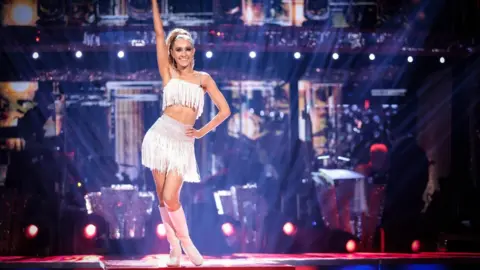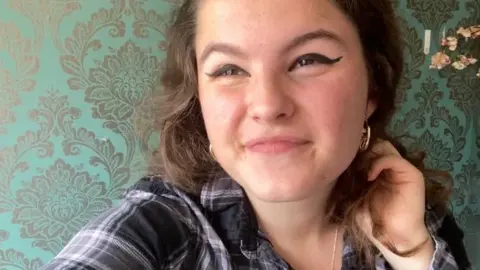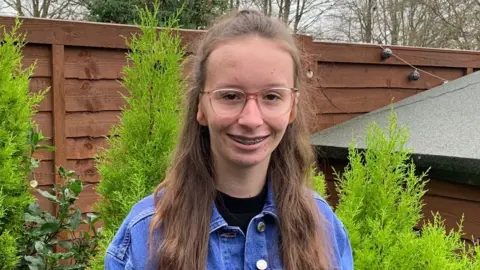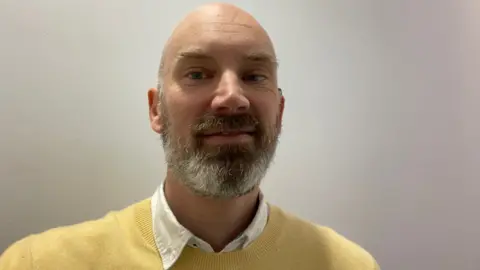Strictly Come Dancing: Deafness 'not a barrier' to the arts
 BBC
BBCThe success of actor Rose Ayling-Ellis in this season's Strictly Come Dancing is shining a spotlight on an "invisible disability". Two teenagers are hoping to follow in her footsteps.
Strictly star Rose Ayling-Ellis is inspiring more deaf young people to pursue careers in the arts.
The EastEnders actor, 26, is the first deaf contestant in the show's history.
Her popularity has also sparked a surge of interest in sign language courses.
And as she dances her way into the quarter finals, Ms Ayling-Ellis is showing young deaf people that "deafness is not a barrier".
'It's so positive - it's not scripted'

Student Ella, 16, from Burnham-on-Crouch, Essex, said Ms Ayling-Ellis had "changed perspectives about deaf people".
"Deafness is an invisible disability," she said.
"People are seeing her every Saturday night, a deaf person being amazing. It's so positive - it's not scripted.
Ella, who has ambitions to work in theatre, directing and writing, lost her hearing when it began to deteriorate at the age of 11. She also wants to become the first deaf fight scene co-ordinator.
"I grew up with that hearing experience - now I'm profoundly deaf I feel I have two perspectives on this.
"It's the first time I've seen a deaf person in that kind of reality show. She's not playing a character, she is showing herself as a deaf person and it's beautiful."
'You can be yourself'

Scarlet, 15, from Borehamwood, Hertfordshire, who wants to become a teacher, turned to dance during lockdown as a "way to escape and take the stress away".
She said the Strictly moment where Ms Ayling-Ellis and her partner Giovanni Pernice danced in silence "had real impact".
"I always say that when I take my hearing aids off there's silence and nothing else - and that dance made people realise what it can go from," she said.
Scarlet was born without outer ears - a condition called bilateral microtia.
"Rose has inspired me in many ways, you can be who you are - even because you have a hearing loss - you can be yourself," she said.
'It doesn't have to be a barrier'

Martin McLean, of the National Deaf Children's Society, said being deaf "doesn't have to be a barrier".
"For deaf young people it's really important to see someone who's deaf like them doing well," he added.
"Being deaf hasn't held Rose back, she's out-performing her hearing peers.
"Often deaf children are the only person in their family, or school or college, who's deaf. There's a lack of role models. It's inspiring to for them to see Rose talk so positively about being deaf.
"It doesn't have to be a barrier - they can achieve whatever they want to."

Find BBC News: East of England on Facebook, Instagram and Twitter. If you have a story suggestion email [email protected]
